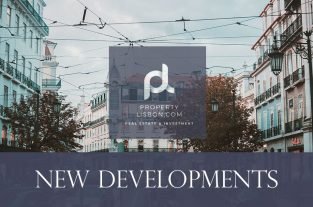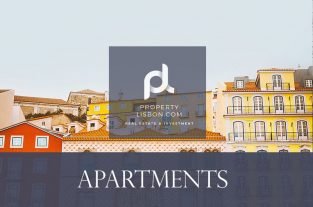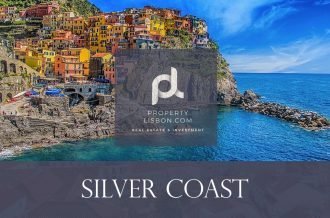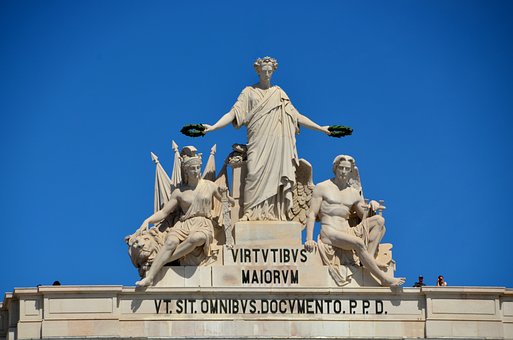Rental income tax in Portugal – Taxes in Portugal

WHAT IS THE RENTAL INCOME TAX ON PROPERTIES IN PORTUGAL?
By 2024, Portugal had specific tax laws and regulations in place concerning foreigners buying property for either investment or private use. As this set of regulations will show, ranging from the actual act of acquisition to the various taxes connected with ownership, it affects both non-resident and resident foreign buyers of property. Herein are highlighted the main issues related to taxation that foreign property buyers in Portugal must consider:
Property Purchase Taxes
A foreigner also owes a number of other property acquisition taxes in Portugal, such as IMT – Municipal Property Transfer Tax Rate: IMT depends on the value of the property and is considered by local government whether it is your main or second residence. For main residence, the rates are as follows: Up to €92,407: 0% From €92,407 to €126,403: 2% From €126,403 to €172,348: 5% From €172,348 to €287,213: 7% Over €287,213: 8% In the case of secondary residences, rates are: Up to €92,407: 2% From €92,407 to €126,403: 5% From €126,403 to €172,348: 7% From €172,348 to €287,213: 8% Over €287,213: 6%
For higher value properties, the rates are as explained above. An additional rate is payed for properties above €1 million or higher and go up to 6% in some cases.
Exemptions: Exemptions might be available for first time home buyers and properties that are to serve as primary residence, according to location and property value.
Stamp Duty (Imposto de Selo)
Rate: This is usually 0.8% of the purchase price or the tax value of the property, whichever is higher.
Taxes on Ongoing Property Ownership
After the property has been purchased, the following are some of the taxes that need to be paid by owners:
IMI – Imposto Municipal sobre Imóveis – Municipal Property Tax
This is charged annually on the ownership of an immovable property.
Rates: This is set locally and ranges from:
0.3% to 0.45% for urban property depending on location.
0.8% for rural property.
The tax payable in respect of IMI is based upon the property’s taxable value, the VPT, which normally lies below market value.
Additional Municipal Surcharges
Where this value exceeds €1 million, this is liable to an additional municipal surcharge, at a rate as high as 1.5%.
Income Tax on Rental Income
Where the property is let out, foreign owners will pay the tax in Portugal on the income derived from letting the property:
Non-Resident Tax Rate:
Non-residents bear a uniform 28% tax rate from the income derived from letting. The rate has become irrespective of whether the type of property or the letting is for long or short-term letting purposes, such as Airbnb-style rentals.
Tax Deductions:
Certain expenses concerning the maintenance of property are deductible against rental income, such as property management fees, repairs, insurance, and utility costs.
Special Case: Short-Term Rentals (e.g., Airbnb):
If you let your property for a stay of less than six months, then it automatically goes into special rules. For example, the income derived from short-term stays attracts a tax rate of 28%, and this amount needs to be declared with local authorities by the owner. 4. Capital Gains Tax upon Sale of Property
In case of selling the property, you may be liable to pay Capital Gain Tax on the profit accrued.
Capital Gain Tax Rate: Generally, 28% for non-residence on the profit gained from the sale of the property.
Exemptions: Some of the main residences are exempt, mainly if you reinvest the proceeds into another property in Portugal within 36 months. You also get partial relief if the property has been in your ownership for more than two years.
5. Inheritance and Gift Tax (Imposto do Selo)
A specific inheritance tax does not exist in Portugal, but a stamp duty is payable regarding the assets transferred by inheritance or gift. It usually reaches 10% of its value, exempting direct family members: spouse, children, and parents.
6. Wealth Tax (AIMI – Adicional ao IMI)
Under the wealth tax, referred to as AIMI, the following rates apply to any ownership of properties whose value exceeds the threshold due as underlined:
Rate
0.7% – on property valued between €600,000 and €1 million
1% on property valued between €1 million and €2 million
1.5% on property valued in excess of €2 million
The property’s value is the sum total of the tax value of all real estate assets in Portugal combined.
Non-Habitual Resident Regime
Special Tax Regime for New Residents: Portugal provides a special tax regime for new residents, which is useful in cases where foreign buyers decide to relocate to Portugal. The following are the key benefits of the NHR tax regime:
Personal Income Tax Exemptions: Most foreign pension income and income from some foreign-source professions will be exempt from Portuguese taxation or taxed at a low, flat rate.
Decreased Tax Rates: The rate can be as low as 20%, depending on the source of income-foreign income for specific professions, such as tech, finance, and engineers.
This regime is available to those who have not been tax residents in Portugal during the preceding five years.
Additional Considerations
Residency can also be granted to foreigners buying property in Portugal, under certain conditions, especially when investing in high-value real estate, such as in the case of the Golden Visa program.
Double Taxation Agreements (DTA): In its effort to avoid double taxation of foreign residents, Portugal has an extensive network of DTAs in place. First of all, if you are a tax resident in another country, it is worth your while checking whether your home country has a DTA with Portugal.
Property purchase taxes in Portugal depend much on many factors, such as the type of property, its value, whether one will rent it out, and one’s tax resident status. It would be advisable to have a local tax professional or lawyer specializing in real estate, to help in observing all the laws and deriving full benefits from available tax benefits.
This document contains information about the tax treatment of letting out properties in Portugal to holidaymakers. This topic is even more pertinent today (November 2014) with the introduction this month of the new law governing Local Lodging (Alojamento Local). Let’s look at the various types of rental operations.
- Before the new Local Lodging Law, it was necessary to obtain a license from the local municipality and then register a business activity (Category B) at the tax office. As many property owners did not have such a license, they either did not declare the income from letting or else declared this as Category F income. With the steep increase in the taxation of Category F income (to 28%) in 2013, plus the introduction of the new legislation, it is advisable to register as operating a business activity (furnished accommodation for tourists – Category B): not to do so will result in steep fines (up to € 3,749 for individuals and between 25 and 35 thousand Euro for companies).As mentioned above, for residents of other EU countries, it is not mandatory to appoint a local tax representative, although this may be advisable in order to handle all the bureaucratic issues.
When registering it is possible to opt for one of two tax regimes: the Simplified Regime or the Organized Accounting Regime.
Under the former, the record keeping is simpler. One is taxed on 35% of the total rentals received, with no allowable deductions. If you are non resident, the tax rate is 25%, making an effective tax rate of 3.75% of gross income – versus 28% under Category F income. If you are resident in Portugal, the tax rate depends on your general IRS rate bracket taking into account your other income. But even if you are in the 40% tax bracket, then the tax payable on holiday rentals is an effective 6%. Of course, it is necessary to issue invoices for the letting income and communicate those invoices every month to the Tax Authority. It may also be necessary to register for VAT purposes if the income exceeds € 10.000,00 in any year, although once you are registered for VAT, you can deduct the VAT on your expenses.
Under the Organized Accounting Regime, one must appoint a registered accountant to keep proper accounts and submit the periodic and annual returns. Under this regime, the property owner is taxed on the accounting profit i.e. rental income less business-related expenses, which include advertising, mortgage interest, building depreciation, accounting fees, repairs and maintenance, etc. One would typically opt for this regime when the amounts involved are significant and the tax saving warrants the cost of a statutory accountant (c. 1,000 euro/year).
NEW 350k GOLDEN VISA PROPERTY
In any event, registration of the commencement of business form is imperative this year and a prerequisite for application of the Local Lodging license under the new rules.
There are other formalities to be observed: the house or apartment must be registered with the local municipal council, by way of a prior communication to the addressed to the Mayor via the “Balcão Unico Electronico” (Single Electronic Counter) – which is free of charge. This may be followed by a physical inspection of the property to ensure it has the basic amenities – sanitation, running water, fire equipment, complaints book etc.
RENTAL OF ROOMS FOR TOURISTS (INCLUDING B&B’S)
A recent Tax Authority directive clarifies the tax treatment of this activity, even where no meals (including breakfast) are included.
Residential: letting out rooms to students – category B income, exempt from VAT;
Tourism: letting out rooms as part of a tourism / hotel-type activity – category B income, subject to VAT at the reduced rate.
LONG-TERM RENTALS LISBON
Rental contracts for longer terms, i.e. more than 1 month, which must be registered at the tax office, fall under Rental Income (Category F). This also applies to property owners who rent out their holiday properties for a fixed sum per annum / holiday season to property developers/agents who in turn let them out to holidaymakers on short-term lets.
If your rental falls under the above category, and regardless of whether you are resident (and do not opt for the inclusion (aggregation basis) or non-resident, you are taxed at the flat rate of 28% on the rental income less the following deductible expenses:
- – Property services (cleaning, pool & garden maintenance, security, concierge)
- – Maintenance (insurance, painting)
- – Annual IMI and other municipal charges
- – Repairs (appliances, plumbing, gas, electrical problems)If you are not resident in Portugal, this income may have to be declared in one’s country of permanent residence and any tax paid in Portugal claimed as a credit under a double tax treaty.If you are resident in another EU country, although it is no longer compulsory to have a tax representative in Portugal, it may still be useful to have one in order to deal with the submission of your local tax return. In this regard, the Portuguese Tax Authority’s website does not have an English version of the annual tax return (Modelo 3).
350.000 Golden Visa Properties
No results for those listing parameters.
Try different settings or refreshing/changing existing ones.













